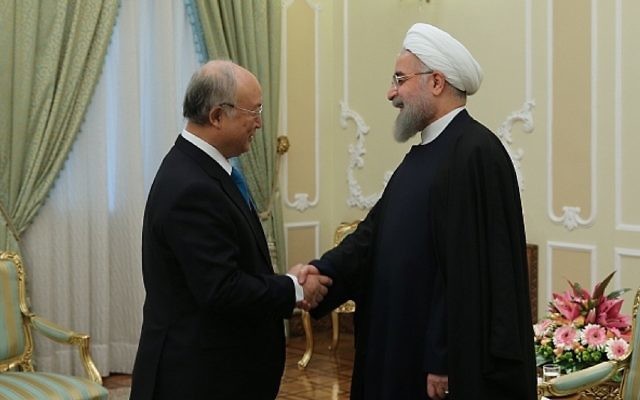ECAJ urges new Iran sanctions
THE Executive Council of Australian Jewry (ECAJ) has called for fresh sanctions on Iran following the lifting of previous sanctions on the Islamic Republic as part of the Joint Comprehensive Plan of Action (JCPOA) nuclear deal.

THE Executive Council of Australian Jewry (ECAJ) has called for fresh sanctions on Iran following the lifting of previous sanctions on the Islamic Republic as part of the Joint Comprehensive Plan of Action (JCPOA) nuclear deal.
Just a day after it was announced that Iran had met its requirements under the landmark deal, the United States issued new sanctions tied to Iran’s ballistic missile program, announcing it would impose penalties on 11 individuals and companies in Iran, China and the United Arab Emirates for helping to provide Iran with secret materials to develop its ballistic missile program in violation of a United Nations Security Council resolution.
ECAJ president Robert Goot told The AJN this week Australia should do the same.
“Iran’s ballistic missile program has not slowed down and the US has, one day after lifting nuclear sanctions, found it necessary to impose new sanctions. Australia should consider following suit,” Goot said.
Stating that the national roof body maintains “serious concerns about the Iran deal and have conveyed these directly to the Foreign Minister [Julie Bishop] and will continue to do so”, Goot said, “There is a very real threat that the watered-down non-proliferation and monitoring standards contained in the agreement will not only fail to prevent Iran from acquiring nuclear weapons, but will also encourage Iran’s regional rivals to create and expand their own nuclear programs, claiming for themselves the benefit of the same relaxed standards.
“This is coupled with the overwhelming danger that Iran will massively expand its nuclear program when the current agreement expires.”
Also expressing its concerns, the Australia/Israel & Jewish Affairs Council (AIJAC) called on the government and all responsible international players to redouble their efforts to ensure that implementation of the JCPOA with Iran is “carefully scrutinised, rigorously enforced, and does not lead to Iran becoming even more of an international threat”.
“Even the strongest proponents of this agreement concede that it does no more than delay Iran becoming a nuclear threshold state, while giving Iran a major boost in its ability to pursue regional dominance, to fund extremist groups and foment international conflict,” AIJAC executive director Colin Rubenstein said.
He said the months since the signing of the JCPOA in July have offered “no evidence that Iran is moderating its behaviour – rather the contrary, as Iran has flouted legally binding UN resolutions to test-launch nuclear capable missiles, and expanded its support for the Assad regime, Hezbollah and other terrorists”.
“The implementation of the JCPOA cannot and must not lead to either complacency or a sense that ‘business as usual’ with the world’s leading state sponsor of terrorism is now warranted,” Rubenstein said.
EVAN ZLATKIS

comments